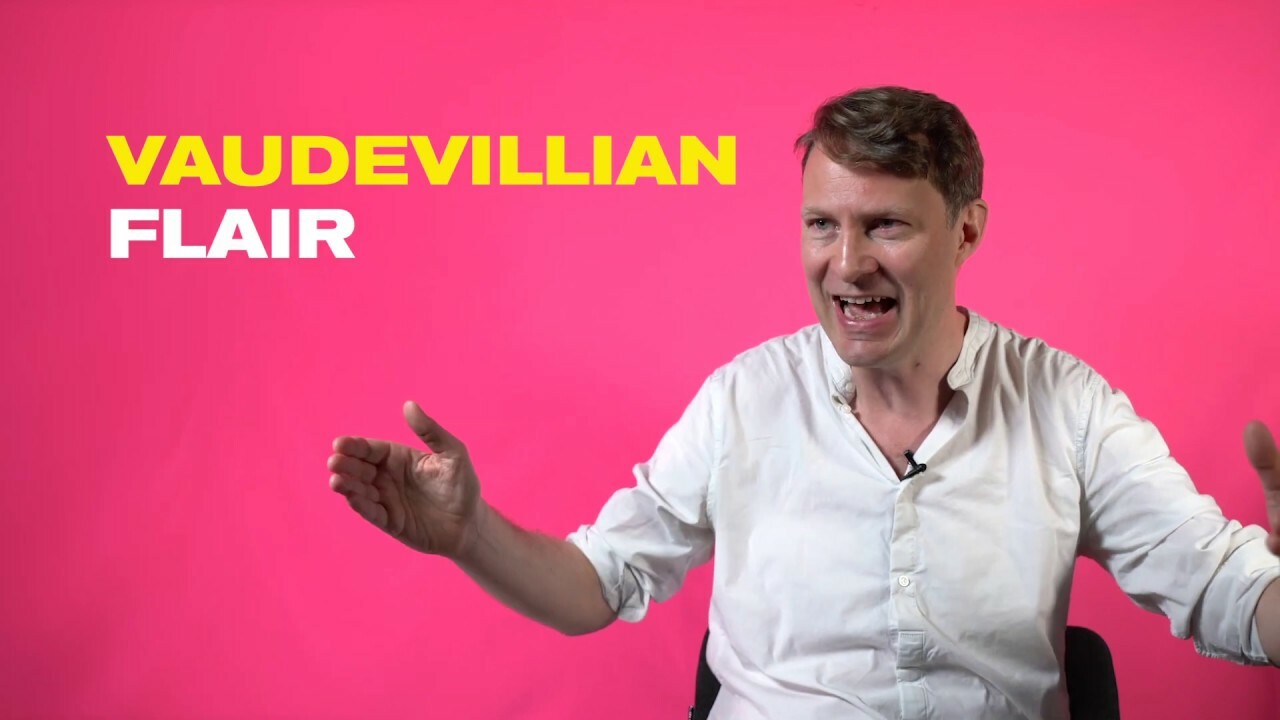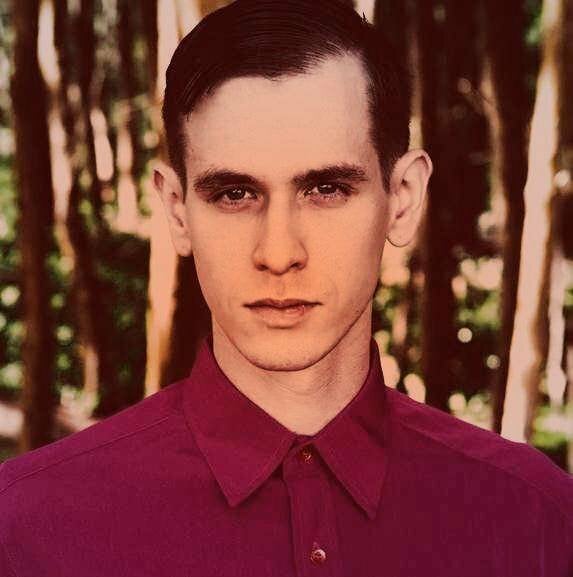Spotlight on Luke Harding, author of A Very Expensive Poison
Published on 5 August 2019
He's no whistleblower per se, but Luke Harding has certainly been flirting with espionage and corruption coverage (with an emphasis on Russian politics) ever since he became a foreign correspondent for The Guardian. The upcoming stage play, *A Very Expensive Poison, *which was adapted by Lucy Prebble, is not the first time Harding's work has entered the entertainment business. His 2014 novel, The Snowden Files, for example, inspired the critically-acclaimed 2016 *Snowden film. Now with the play's highly-anticipated world premiere at The Old Vic Theatre *just around the corner, there's no better time than now to review Harding's illustrious life and career.

Luke Harding biography and career beginnings
Born in 1968, Luke Daniel Harding got an early start in journalism when he studied English at University College at Oxford and edited the *Cherwell *student newspaper there. After graduation, he went on to write for *The Sunday Correspondent, *Brighton's *Evening Argus, *and finally the *Daily Mail *before landing a journalist position for *The Guardian *in 1996. The British journalist eventually became a foreign correspondent for the publication and was based in Delhi and Berlin before eventually being based in Moscow in 2007 when his career really took off, for better or for worse.
A brush with death? Luke Harding gets close to his own expensive poison.
Flashback to 2007. Just three months after moving to Russia and becoming the new Moscow bureau chief for The Guardian, Harding was immediately convinced he was being followed and harassed by Russian agents. He had returned to his Moscow flat from a dinner party one night when he noticed the window of his son's bedroom was left wide open. He was more than 100 per cent sure he had closed the window before he left and, in fact, had always kept it shut due to the falling hazards an open window posed to his children. Harding went to check out the spare room and heard a tape hissing in the tape player, something he was sure he did not do. After later going to sleep, he awoke to a strange alarm clock going off in the living room, one that he did not set himself. The alarm was set for 4.10am on a Sunday. It may not have been a burglary, but he was convinced it was a warning.
Harding had assumed the perpetrators were from the FSB (Federal Security Bureau), which he has likened to a Post-Soviet KGB. After all, breaking and entering had long since been an old KGB trick. Fifteen days prior to Harding's 2007 break-in, Russian oligarch and Kremlin opposer** Boris Berezovsky** had interviewed for *The Guardian, *in which he called for an immediate uprising against Putin's regime. Harding's name was listed on that scandalous front-page story, and shortly after the article was published, his life had changed forever. He has alleged that someone hacked into his private e-mail; a stranger called his office asking for his phone number; and a woman with a 1970s haircut dressed in casual attire waited outside his front door at 7am. When Harding answered the door, she took a good look at him and then, without a word, walked away.
It wasn't long after a criminal investigation was launched by the FSB on the Berezkovsky article that Harding was called to provide a witness statement to Major AV Kuzmin at Lefortovo Prison, a notorious former KGB jail adorned with a barbed wire wall. Taking his lawyer with him and after temporarily handing over his passport, Kuzmin began a rapid-fire series of questions.
What started off as a normal interview quickly became, as Harding described it, an interrogation meant to intimidate him. While at the prison, Harding was offered fizzy water to drink, but he refused. After all, it was only a year ago that former spy and whistleblower Alexander Litvinenko had been radioactively murdered by Andrei Lugovoi, who had laced Litvinenko's green tea with polonium-210. At that time, it was uncertain whether the Kremlin was in on the attack, but Harding was not willing to take his chances, opting to go thirsty instead. Was it a close call for Luke Harding? Perhaps. After moving to a wooden dacha house in the northwestern part of Moscow, the break-ins continued and the psychological harassing never seemed to stop.
Luke Harding books after his residency in Moscow
In February 2011, Luke Harding became the first foreign journalist since the end of the Cold War to be refused re-entry into Russia, likely linked to his wealth of insider knowledge and exposé journalism. Russian Foreign Minister Sergei Lavrov later claimed that Harding's visa had expired, which was a blatant lie as Harding's visa was clearly valid until May of that year. After some pressure from both sides, he was eventually re-granted entry, but he chose not to renew his visa by the time his new short-term visa expired.
After leaving Russia, Harding wrote a number of best-sellers, including *WikiLeaks: Inside Julian Assange's War on Secrecy *(2011), which was co-written by David Leigh and adapted into the Hollywood film, The Fifth Estate (2013); The Snowden Files (2014), which was adapted into the 2016 film *Snowden *starring Joseph Gordon-Levitt; A Very Expensive Poison (2016), now a major London stage play by Lucy Prebble; and his latest work, Collusion: Secret Meetings, Dirty Money, and How Russia Helped Donald Trump Win (2017). Whilst the *WikiLeaks *book was considered a dud and only a mild critical success, Harding struck gold with *The Snowden Files *and *A Very Expensive Poison, *both of which went on to become runaway hits.
*The Snowden Files itself was praised for its novelistic feel and received positive reviews from many major publications, including The Guardian *and The Washington Post. Luke Harding's A Very Expensive Poison, in particular, was lauded by the Evening Standard as 'one of the best political thrillers' in years.
Still being chased, followed, and harassed? Harding claims yes
It appears Harding is still being monitored, even after leaving the hornet's nest in 2011. When writing his book on NSA whistleblower Edward Snowden, Harding once claimed that his paragraphs would often self-delete. While interviewing Glenn Greenwald, the Guardian columnist whom Snowden entrusted with his many classified files, Harding suspected they were being spied on in a hotel lobby and they ended up changing locations a couple of times; a man was fiddling on his iPhone whilst another was creeping nearby. The CIA in Rio de Janeiro where Harding was interviewing Greenwald had allegedly stolen Greenwald's roommate's laptop.
Perhaps uncoincidentally, when Harding returned to his hotel room after the interview, he found he could no longer lock his safe. The CIA had also allegedly sent an American spy to check Harding out, wanting to join him on a sightseeing tour, take his photograph and buy him a beer and dinner. After the two ended up seeing no tourist attractions, a suspicious Harding declined to join for dinner. Later, Hardin's iPhone began to malfunction. At the time, NSA had been revealed to have over 100,000 surveillance targets, and Harding believed he was one of them. He soon began to work offline and write the book on an encrypted disk.
After several instances of his work being remotely deleted, Harding began to leave messages for the hacker in his manuscript, saying he would appreciate it if they would not delete his work. There was no reply but the interference eventually stopped a month later.
Book *A Very Expensive Poison *tickets and save up to £26!
You don't want to miss the long-awaited premiere of *A Very Expensive Poison *at The Old Vic Theatre in London. Don't let the title fool you, tickets for *A Very Expensive Poison *are very cheap and affordable, especially thanks to our special #LTD20 West End ticket offers. Book by 16 August 2019 and save up to £26 on *A Very Expensive Poison *Old Vic tickets. £66 tickets are now £40, £48 tickets are now £30, and £36 tickets are now £20. This offer is valid for all performances between 24 and 31 August 2019. But hurry and act fast! You must book by 6 August, and once these discounted tickets are gone, they're gone!
🎟 **Purchase A Very Expensive Poison tickets and save as much as £26.

By Nicholas Ephram Ryan Daniels
Ephram is a jack of all trades and enjoys attending theatre, classical music concerts and the opera.
